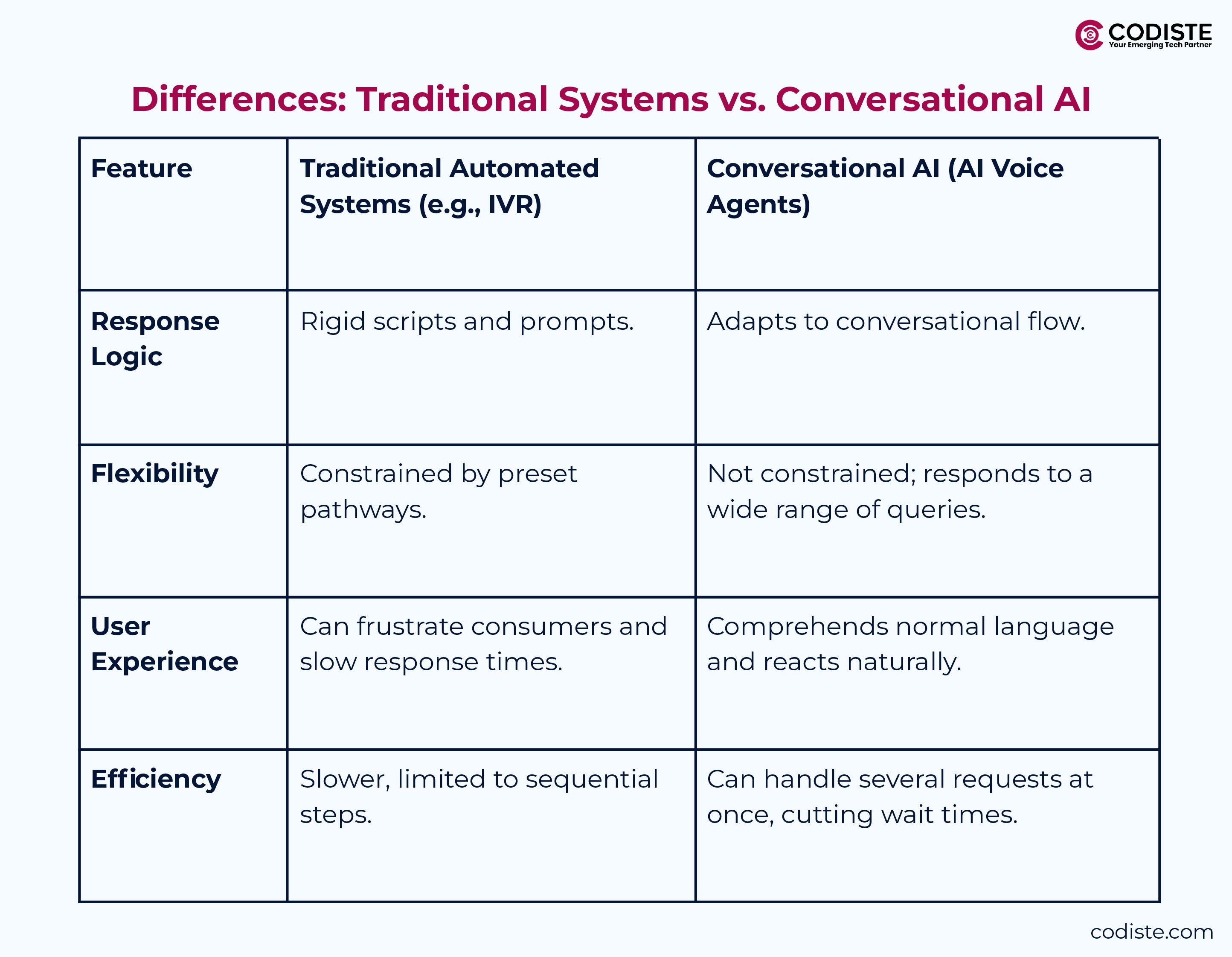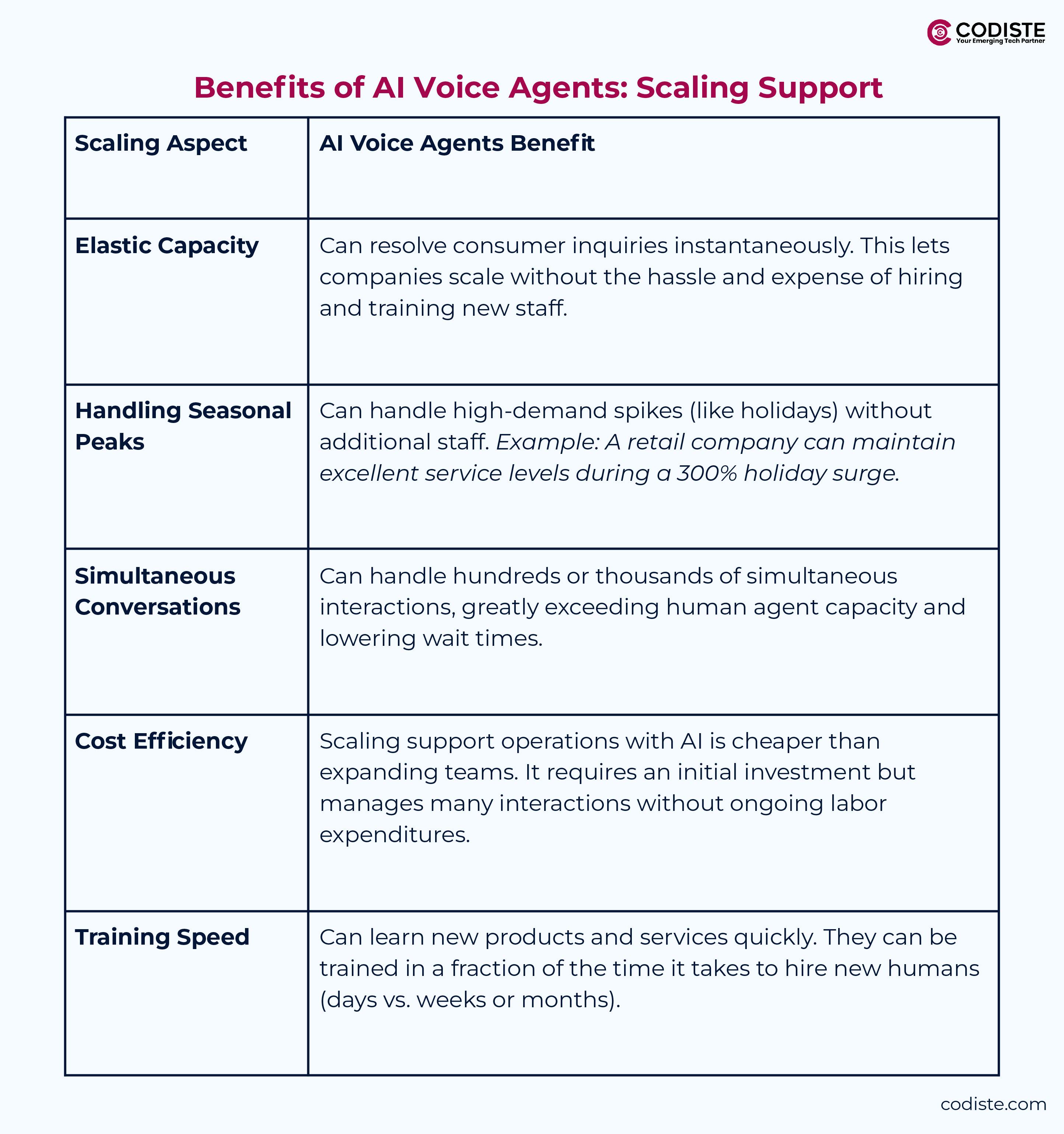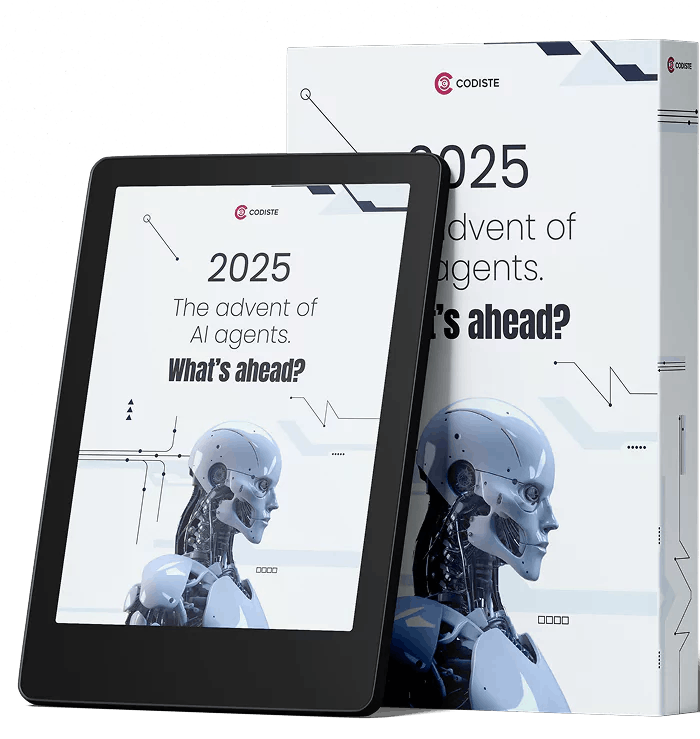


Businesses are encountering difficulties in scaling customer service in today's rapidly evolving digital ecosystem. Companies often struggle to deliver the quality of service that clients demand while dealing with rising call volumes, labor shortages, and financial strains. More than 70% of consumers now anticipate prompt answers to their questions. There is also an increasing need for round-the-clock accessibility, per recent surveys.
Client expectations have changed. It is now critical for firms to find creative ways to satisfy these demands without using up all of their resources. Here comes AI voice agents, a game-changing tool. This tool improves customer satisfaction while simultaneously relieving the strain on customer service representatives.
With AI in customer support, businesses can optimize operating costs. They ensure prompt and effective responses to client interactions around the clock by utilizing cutting-edge AI technology. This blog will examine how an AI voice assistant for business will help transform customer service and facilitate easy business scaling.
AI voice agents use sophisticated conversational interfaces to communicate with users via voice commands. They utilize Natural Language Processing (NLP) and Machine Learning (ML) for customer service. These intelligent systems simulate human-like interactions. They perform a range of customer support duties, including answering questions, giving information, and carrying out actions. They are made to comprehend, interpret, and react to human speech.
These smart voice agents use a systematic workflow that includes several crucial elements:
In conclusion, these smart voice agents enable 24/7 help, reduced wait times, and personalized experiences. They improve the customer experience by reading client questions, obtaining relevant information, and reacting in a natural, conversational manner using advanced NLP and ML.
The advancement of customer support technology has been both exciting and revolutionary. It has moved from a basic contact center to an intelligent AI voice assistant for 24/7 support, capable of carrying on natural conversations.
Modern AI Voice Agents: Technology now makes AI voice agents possible. ML and NLP let current solutions comprehend and respond to consumer inquiries more naturally. AI voice assistants transform customer service. They can answer many queries, learn from interactions, and provide personalized support.

The current environment makes the deployment of speech AI technologies crucial. The following elements add to this urgency:
AI speech technology adoption is becoming essential for companies looking to prosper in a cutthroat market. This helps them negotiate the complexity of contemporary customer demands.
AI voice agents solve high call volumes and personnel shortages, revolutionizing customer care. Here is how AI helps support teams scale:

NLP is the key technology that lets AI speech agents understand human language. NLP helps agents grasp client intent from casual or incorrect spoken requests. Customers can communicate their wants in their own words, making interactions more genuine. Businesses can answer questions faster and more precisely, improving consumer satisfaction.
Sentiment analysis is a key function. It helps AI voice operators assess client emotions. AI can assess if client queries are positive, negative, or neutral. This allows them to personalize responses. If a customer is frustrated, the AI can escalate to a human agent or show empathy, improving the experience. This capacity improves customer service and personalizes interactions.
Read more: Sentiment Analysis in ML : Algorithms and Applications Defined!
AI voice assistants obtain real-time customer data and information by seamlessly integrating with Customer Relationship Management (CRM) and knowledge libraries. This integration lets agents personalize responses based on customer history, preferences, and engagements. With immediate access to this information, AI voice assistants address issues faster and make consumers feel appreciated.
AI voice agents automatically create support tickets. They route these tickets to the right department or agent for customer inquiries. This automation speeds up support, reducing resolution time. Businesses can improve response times and customer satisfaction by categorizing and prioritizing tickets by urgency.
When humans are needed, AI voice agents can summarize conversations. A brief review of the interaction history highlights crucial topics and consumer sentiments. Organizations can shorten onboarding time and help agents comprehend the issue by giving them this information. This speeds up, resolves and improves AI-human support.
Read more: How AI Voice Agents Are Revolutionizing Customer Support
Choosing use cases and ensuring a smooth transition are essential to incorporating AI voice agents into a business. Effective implementation tactics include:
Can you imagine a world where AI agents make real-time decisions for you?

Emotional intelligence will advance in AI voice support. Advanced AI systems can recognize and analyze customers' voice tone, pitch, and tempo. AI voice assistants can adapt their tone and responses to customers' emotions. Example: In response to client displeasure, the AI can calmly reassure the customer, improving the engagement. Increasing emotional intelligence will make human-machine interactions more natural and supportive.
AI voice operators are becoming proactive. They anticipate client needs and initiate interactions before customers do. Example: An AI voice agent may remind a customer of an appointment, propose a follow-up, or prevent difficulties from escalating. This proactive strategy improves customer satisfaction by offering quick support and shows brand concern. AI can forecast customer behavior and preferences using data analytics and ML.
The seamless handoff will be crucial as AI voice technology matures. AI will seamlessly shift the conversation to a human agent when an issue requires human assistance, providing context and relevant information. This eliminates client repetition, improving efficiency and satisfaction. Businesses boost customer loyalty by keeping discussions consistent.
Voice biometrics for authentication is another future trend. This system uses distinctive speech qualities to authenticate users securely and conveniently. Customers might make purchases or access critical data without passwords or PINs, using their voices. This reduces authentication friction, improving security and consumer experience.
Human-like AI agents to reduce client waiting periods.
AI voice agents enable scalable, efficient, and responsive customer support, revolutionizing it. By automating typical questions and offering fast responses, these intelligent tools help firms satisfy consumer demands while optimizing resources. Users enjoy faster resolutions and individualized interactions with AI voice operators. This improves operational efficiency and customer satisfaction.
Now is the moment to assess business needs and adopt these AI voice technologies for customer assistance. Assess support processes, identify improvement opportunities, and consider adding AI voice agents. By being proactive, firms can satisfy changing client expectations and stay ahead of the competition.
Moving forward, we foresee a human-AI support ecosystem. AI voice assistants for business will work together with human agents. AI handles routine chores and early support, letting human agents focus on complicated issues that demand empathy, creativity, and critical thinking.
By investing in AI customer service solutions, businesses can prosper in a digital age and provide great service that combines technology and the human touch. To solve this challenge, you need a robust AI voice agent that can be AI and still feel human. To your surprise, we got you covered. With Codiste’s AI voice development services, you can sit back and relax while we do the heavy lifting for you. Get a free




Every great partnership begins with a conversation. Whether you’re exploring possibilities or ready to scale, our team of specialists will help you navigate the journey.